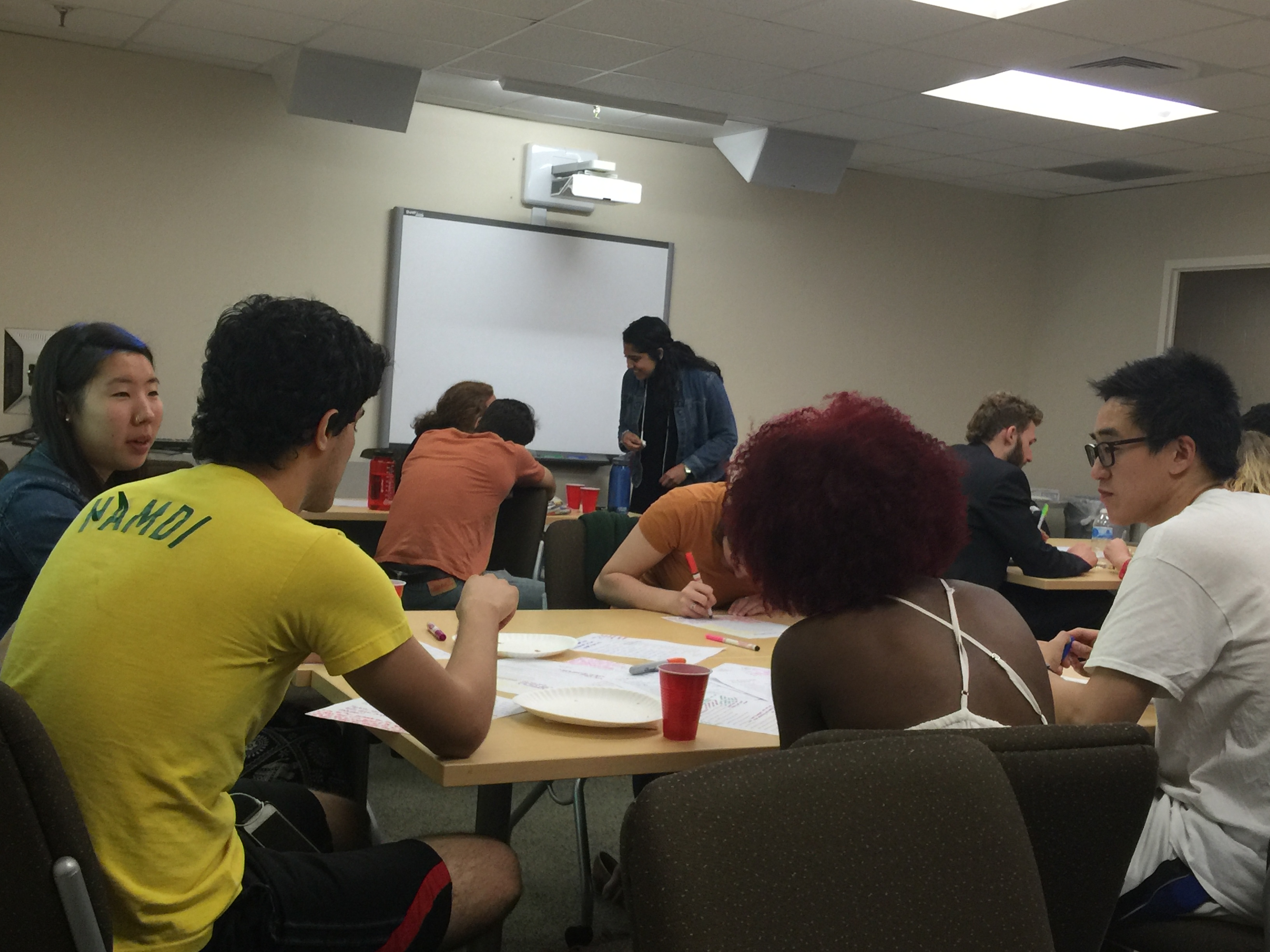By Chris Spencer
For The Diamondback
The campus group The Voice: Juvenile Justice hosted an event that brought about 20 university students together Wednesday to read literature written by juveniles who have been charged as adults.
The club collaborated with the Free Minds Book Club, a Washington-based nonprofit literacy organization that assists juveniles, to host “Write Night.” The organization helps juveniles regain confidence and a sense of positivity, and collaborates with the club twice a semester.
Students brought poems or creative writing pieces and gathered in the Benjamin Building basement to try to form a social link between themselves and those who are shunned and often forgotten about.
Ryan Greenstein, the policy chair of the organization, attended the event and distinguished the difference between what the club has previously worked on compared to Free Minds’ Write Night goals. Instead focusing on information about prison system corruption, this event was more about direct interaction with inmates.
“This week is more about drawing the connections and directly interacting with juveniles in faculties,” Greenstein noted. “Today we critique poems that have been sent to us by Free Minds.” Students were prompted to write responses to poems they received from Free Minds as soul, reggae and funk music played among them in the background. Using colorful Sharpies, the students carefully wrote their thoughts on the poems, which would be sent back to the incarcerated youth.
The Voice opened the event by showing a YouTube video that had a similar theme to the events — to demonstrate the positive impact of reading and replying back to poems from youths in the prison system.
“They are really moving. I think that a lot of the times people don’t really see that incarcerated youths have plans for a positive future, and they have family connections that are relatable to our own feeling, situation in life,” said Laura Miller, a junior majoring in finance and information systems who helped create the club. “It’s really cool to connect with them through and these written certain emotions.”
Miller said poetry can transform the lives of incarcerated juveniles and demonstrate their progression into active members in society.
“Poetry is really a great way for self-reflections, and oftentimes that self-reflection is really transformative as the incarcerated youth are moving from a life full of negative happenings and turning around and becoming productive members of our society,” Miller said.
Shalom Sabwa, a junior community health major, was surprised that she liked the event as much as she did and said that art is the pathway to getting to know someone.
“I actually didn’t realize how much I would love [the Write Night],” she said. “I wrote more pages than I feel I thought I would, because I connected with someone, and art always does that.”
Sabwa also said the event helped to give her a different perspective on youths in the prison system.
“I feel a certain way about mass incarceration,” she said. “I wish that there were other options of dealing with that, because [the prison system is] taking away precious lives who are talented.”



